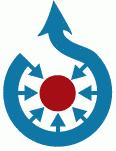...'Reeducation camps' or 'Support for religious militas'? Explanation follows below.
I just fell over an older story in the
New York Times by the recently killed american journalist Steven Vincent, writing from Basrah.
Apparently the British reconstitution of the Police-force is going really well here, in the City often thought to be the most 'under control' in Iraq.
But Vincent pointed out that as much as 75% of the force might be backers of the shiite cleric and troublemaker Moqtadr al-Sadr. That means that the Brits (and the Danes as far as I know) are right now training a crack force of potentially political (religious) militia. And the problem, according to Vincent, is that the police is not instructed in democracy - they are not told that they should be politically neutral when on work, tear down posters of religious or political content in their canteen and not moonlight for the militias.
A local Iraqi observes:
"The British know what's happening but they are asleep, pretending they can simply establish security and leave behind democracy."
Free the people, and the rest will follow. Security = democracy. Of course we can see it is wrong when put up like that. But on the other hand, nobody wants to be an empire and 'reeducate' the new democratic subjects. Vincent apparently paid for his observation with his life.
Enter Denmark?In recent research some have expressed to me that Denmark might have a role as an 'untainted' military power. I didn't really go for it initially, but I must admit that the above problems actually set it in perspective for me.
In the Danish Government's
Iraq analysis they stress a number of things:
* The Police Project is extended to the end of 2005. The need for a strengthened Danish contribution to Iraqisation of the police will be investigated. Denmark contributes to EU's rule of law and police programme, EUJUST LEX as well.
Okay. So we are perhaps helping in training the militias.
* Development assistance will focus on human rights, rule of law and police, democratisation, infrastructure, agriculture and humanitarian assistance. Agriculture because it produces food and creates employment.
Okay. So we are actually doing some 'reeducation'. But note how it is not backed by an explanation, , unlike the agriculture bit. Now, is that a good sign or a bad sign?



